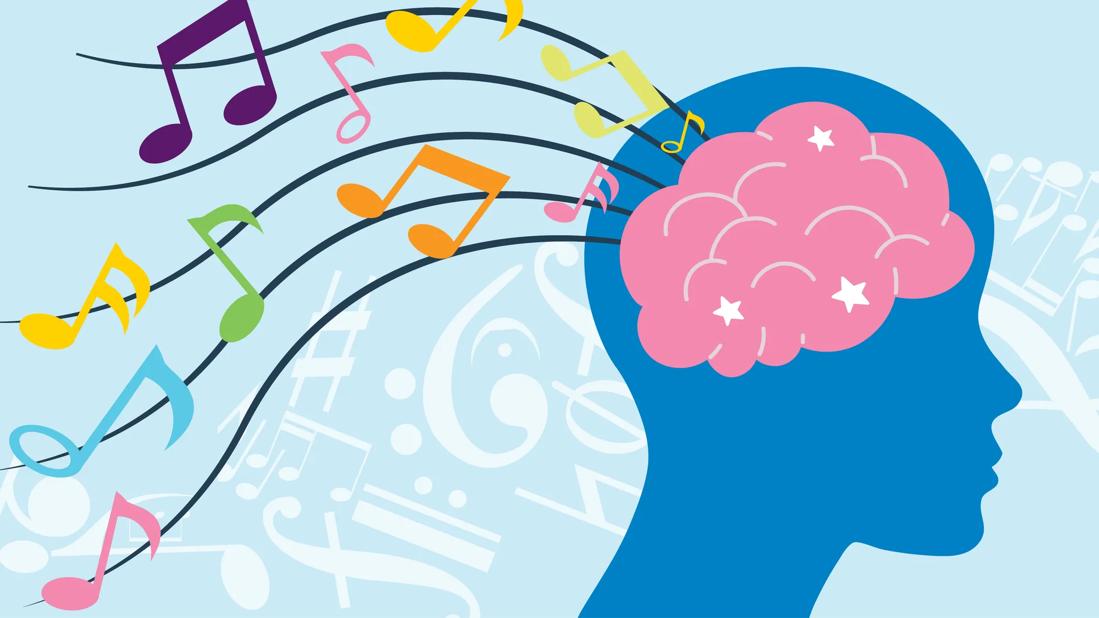Music is not just a mere form of entertainment; it is an acoustic marvel with the power to activate various brain regions and fundamentally alter human behavior and brain function. Research reveals that engaging with music can evoke memories, strengthen cognitive abilities, and influence mood, underpinning why music therapy is becoming increasingly recognized as a tool for emotional and mental well-being.
Understanding the neuroscience behind music benefits and how it can be a therapeutic agent for issues like depression and cognition is paramount for harnessing its full potential. This article explores the emotional and physical health advantages of music, while also guiding readers to choose the right music for their individual needs to enhance mental well-being and overall happiness.
Music and the Brain
Engaging with music has profound effects on the brain, enhancing various cognitive functions and emotional states. Here’s how music interacts with our brain:
Intelligence and Focus: Classical music at 60 beats per minute can boost the brain’s information processing capabilities. This is particularly beneficial for tasks requiring concentration and focus.
Emotional Processing: The brain’s right hemisphere, which is crucial for emotional experiences, is activated when we listen to music. This activation is associated with the rapid processing of music in the limbic system, triggering the release of dopamine, the ‘feel-good’ neurotransmitter.
Physical Responses: Our physical state can also be influenced by music. Fast-paced music can elevate pulse rate and blood pressure, while slower rhythms tend to have a calming effect, reducing these physiological markers.
Incorporating music into daily life can lead to several benefits:
Cognitive Enhancement:
- Music can make learning more engaging, improving cognitive function.
- Stimulating the brain with music keeps it active, which is especially beneficial as we age.
Physical Health:
- Listening to slow or meditative music can relax the body, whereas faster tempos can cause arousal followed by relaxation.
- Music therapy can serve as a non-invasive method to stimulate the brain, aiding in social learning and emotional well-being.
Memory and Creativity:
- Music and memory are closely linked, with familiar tunes helping to recall past memories.
- Exploring new music can jump-start creativity and enhance quality of life, particularly in older adults.
By understanding these interactions, individuals can select music that aligns with their desired outcomes, whether it’s for therapy, mood enhancement, or cognitive benefits.
Read: How to Effectively Manage and Reduce Stress at Work
Emotional and Mental Health Benefits

Music’s influence extends far beyond mere auditory pleasure, becoming a therapeutic tool for emotional and mental health. Here are some ways music touches our lives:
Relieving Anxiety and Improving Mood: The soothing power of music helps alleviate anxiety and fosters a more positive mood. This is particularly true for compositions that resonate personally or are structured to calm, such as classical or meditation music.
Managing Depression: For those facing the challenges of depression, music therapy has emerged as a beneficial treatment. The mood-boosting properties of certain genres, like classical and meditation music, are especially significant.
Articulating Feelings: Sometimes words fail to capture our emotions, but music can provide a voice. Music therapy offers a unique avenue for individuals to express their feelings, serving as an alternative to traditional talk therapy.
Combating PTSD: Recovery from traumatic events is a complex process, where music therapy can be a valuable ally, particularly for individuals grappling with PTSD.
Expressing Emotions: Instrumental and vocal music alike offer a non-verbal medium to convey complex emotions, providing a release for feelings that might otherwise remain unspoken.
Boosting Self-Esteem and Confidence: Certain types of music, such as subliminal and ambient tracks with binaural beats, can sharpen the mind and improve self-esteem and confidence.
Relaxation: The relaxing effect of meditative music is not just a subjective experience; it has a tangible impact on both body and mind, promoting a state of tranquility.
Anger Expression: Engaging with music that mirrors our inner turmoil, such as ‘angry’ music, can be a therapeutic outlet for stress and anger management.
Stress Reduction: The act of listening to music can reduce both physical and psychological stress by influencing neurochemical release in the brain.
Dopamine Release: Music can prompt the release of dopamine, a neurotransmitter linked to pleasure and happiness, enhancing our overall sense of well-being.
Singing for Well-being: The act of singing, whether alone or in a group, can lead to relaxation, emotional release, and a positive mood, contributing to greater emotional and physical well-being.
Alleviating Migraines and Headaches: For those who suffer from migraines or headaches, music’s de-stressing effects can offer relief.
Support for Cancer Patients: Music therapy can bolster coping abilities and resilience in cancer patients, aiding them in their journey.
Reducing Symptoms of Depression: By triggering biochemical stress reducers and boosting dopamine production, music can alleviate anxiety and depressive symptoms.
Personal preference is crucial when it comes to reaping the benefits of music. Classical music and nature sounds are often recommended for their stress-reducing and mood-improving effects.
Physical Health Advantages
The physical health advantages of music are as significant as its emotional benefits. Studies have shown that:
- Stress Reduction in Surgical Patients: Patients undergoing surgery who listened to music required less sedation, exhibited lower blood pressure, heart rate, and stress hormone levels, resulting in a smoother recovery process.
- Decrease in Stress Markers: Regular listening to music can lead to a consistent decrease in stress markers like cortisol and adrenaline, contributing to overall cardiovascular health.
- Pain Management: Music therapy has proven effective in reducing post-operative pain and physical tension. By providing a competing stimulus to pain signals, music helps manage pain levels, which is particularly beneficial in geriatric care, intensive care, or palliative medicine settings.
- Appetite Control: Background music during meals can create a calming environment that encourages slower eating and, as a result, potentially less food consumption.
- Exercise Enhancement: Those workout playlists do more than just motivate. They can actually enhance physical performance and increase endurance, making exercise sessions more effective.
Incorporating music into different aspects of daily life can play a pivotal role in improving physical health and well-being. Whether it’s through reducing stress, managing pain, controlling appetite, or boosting workout performance, the benefits of music on physical health are both measurable and impactful.
Choosing the Right Music for You

To harness the health benefits of music, it’s essential to choose tunes that resonate with you personally and have a calming effect. Music with a slow tempo, specifically within the range of 60-80 beats per minute, can be particularly beneficial. Here’s a straightforward approach to selecting the right music for your well-being:
Identify Music You Enjoy: Start by compiling a playlist of songs that bring you joy and relaxation. Your connection to the music is key to experiencing its therapeutic effects.
Consider the Tempo: Aim for tracks with a slower beat, around 60-80 beats per minute, which can help slow brainwave activity and promote a state of calm.
Experiment and Observe: Pay attention to how different songs affect your mood and stress levels. Keep a log if needed, and adjust your playlist based on what works best for you.
When incorporating music into your routine, remember that personal enjoyment is paramount. Whether it’s classical, jazz, or soft instrumental pieces, the right music can serve as a powerful ally in enhancing mental well-being and overall happiness. Use these guidelines to curate a soundtrack that not only pleases your ears but also supports your health.



